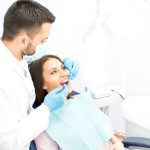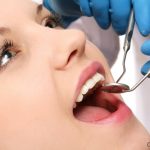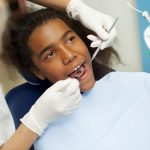Sleeping After Wisdom Teeth Removal: Tips for a Comfortable and Speedy Recovery
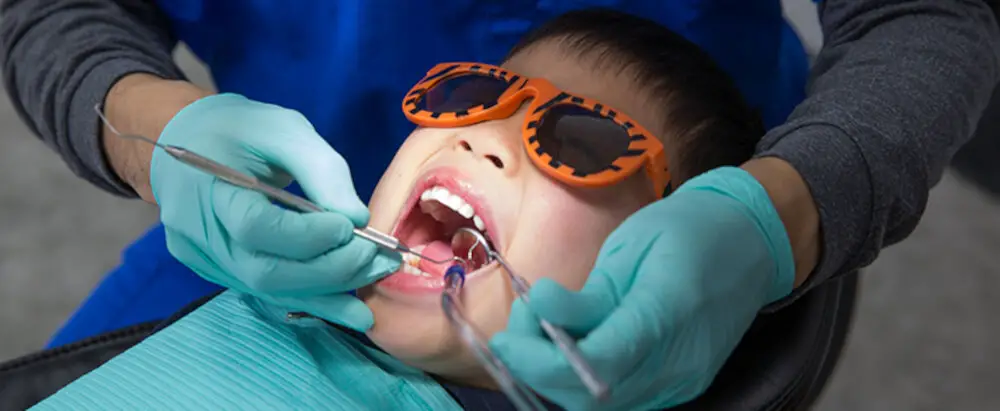
After wisdom teeth removal, it is common to experience pain, swelling, and discomfort. These side effects can make it challenging to fall asleep and stay asleep. While getting enough rest is crucial for a speedy recovery, it can be challenging to do so comfortably. Fortunately, there are several tips and tricks that can help individuals sleep better after wisdom teeth removal. By following these strategies, patients can ensure they get the rest they need to heal quickly and comfortably. One of the most effective ways to sleep after wisdom teeth removal is to elevate the head. Lying flat can cause blood to pool in the mouth, leading to increased swelling and discomfort. By elevating the head with a pillow or two, patients can reduce swelling and promote better blood flow. Additionally, sleeping on the back can exacerbate swelling and discomfort, so it may be helpful to sleep on the side instead. By taking these simple steps, patients can improve their comfort and speed up the recovery process.
Wisdom teeth removal is a common dental procedure that involves the surgical removal of the third molars from the back of the mouth. These teeth are often removed due to overcrowding, impaction, infection or decay. While the procedure is relatively simple, the recovery period can be uncomfortable, and it is essential to take proper care to minimize pain and complications. One of the critical factors in post-operative care is getting enough sleep. Sleep is vital for the body to heal, and it can help reduce inflammation, pain, and swelling. Additionally, sleeping with the head elevated can help reduce bleeding and promote better circulation. It is recommended to get plenty of rest and avoid physical activity during the first few days of recovery to ensure a smooth and speedy recovery.
Sleeping Position
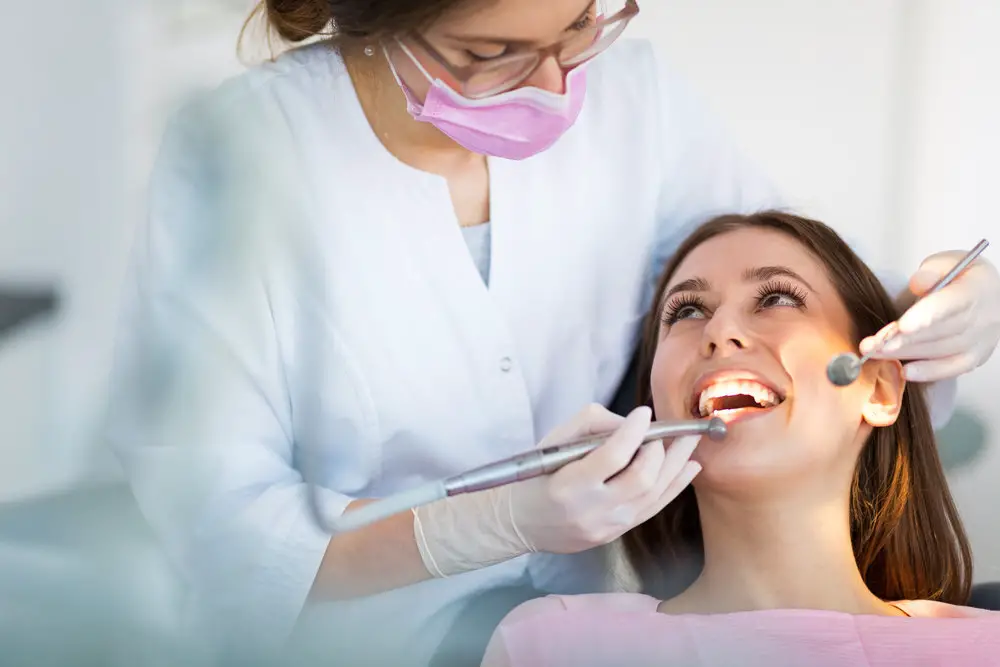
Sleeping position plays a crucial role in a comfortable and speedy recovery after wisdom teeth removal. It is recommended to sleep with your head elevated at an angle of 45 degrees to reduce swelling and bleeding. You can use pillows to prop your head and upper body up, or you can sleep in a recliner if you have one. Sleeping on your side is also an option, but make sure to prop your head up with a pillow. Avoid sleeping on your stomach as it can increase swelling and pain. Another important aspect of sleeping position is avoiding pressure on the surgical site. If you sleep on the side where the wisdom teeth were removed, it can put pressure on the area and delay the healing process. Therefore, it is recommended to sleep on the opposite side or with your head elevated. Additionally, avoid touching or rubbing the surgical site while sleeping, as it can cause irritation and delay healing. Following these sleeping position tips can help you have a comfortable and speedy recovery after wisdom teeth removal.
After wisdom teeth removal, it is essential to find the best sleeping position to ensure a comfortable and speedy recovery. Dentists recommend sleeping with your head elevated at a 45-degree angle using pillows to reduce swelling and bleeding. Sleeping on your back is also advisable as it prevents blood from pooling in the surgical site. Avoid sleeping on your stomach or the side of your face that underwent surgery as it can cause discomfort and prolong the healing process. Additionally, keeping your mouth slightly open while sleeping allows for better airflow and reduces the risk of dry socket, a painful condition that can occur after wisdom teeth extraction. By following these tips, you can ensure a peaceful and restful sleep while promoting healing and recovery.
After wisdom teeth removal, it’s crucial to maintain a proper sleeping position to ensure a comfortable and speedy recovery. One tip is to elevate your head using two pillows or a wedge pillow to reduce swelling and promote good blood flow. Additionally, sleeping on your back can help prevent any accidental pressure on the surgical site. For those who are accustomed to sleeping on their side, it’s best to use a U-shaped travel pillow to cradle your head and prevent it from turning. Lastly, avoid sleeping on the side where the surgery was performed to prevent any discomfort or pain. Remember, a good night’s rest is essential for healing, so choose a comfortable position that works for you.
It is essential to avoid certain sleeping positions after wisdom teeth removal to ensure a comfortable and speedy recovery. Sleeping on your stomach or with your head elevated can increase swelling and pain, causing discomfort and prolonging the healing process. It is recommended to sleep on your back with your head slightly elevated using pillows to reduce swelling and pressure on the surgical site. Additionally, avoiding sleeping on the side where the wisdom teeth were extracted can also prevent discomfort and promote faster healing. Adopting proper sleeping positions is crucial for a successful recovery, allowing you to rest and heal without any complications.
Pain Management

Wisdom teeth removal is a common oral surgery that can cause significant pain and discomfort for several days. Effective pain management is essential for a comfortable and speedy recovery. Pain relief medication such as ibuprofen or acetaminophen can be taken as prescribed by the dentist or oral surgeon. These medications help relieve pain and reduce inflammation. However, it is important to follow the recommended dosage and not to exceed the prescribed amount to prevent any adverse effects. Applying ice packs to the affected area for around 20 minutes at a time can also help reduce swelling and pain. It is advisable to rest for at least 24 hours after the surgery, avoid strenuous physical activities and keep the head elevated while sleeping to promote blood flow and reduce pain and swelling. In addition to medication and cold compresses, there are several natural remedies that can help alleviate the pain after wisdom teeth removal. Gargling with saltwater can help reduce inflammation and prevent infection. Chamomile tea bags can also be used as a natural remedy to soothe the affected area and reduce pain and swelling. A soft diet consisting of mashed potatoes, yogurt, and smoothies can be easier to consume and digest, reducing the strain on the mouth. Staying hydrated with water and avoiding hot and spicy foods can also help prevent any discomfort or irritation. With proper pain management techniques, patients can minimize pain and discomfort and enjoy a comfortable and speedy recovery after wisdom teeth removal.
After wisdom teeth removal, pain management is crucial for a comfortable and speedy recovery. There are several options available for pain relief, including over-the-counter pain medications, prescription pain medications, and natural remedies. Over-the-counter options such as ibuprofen and acetaminophen can help reduce pain and swelling. Prescription pain medications such as opioids may be prescribed for more severe pain but should be used with caution due to their potential for addiction. Natural remedies such as ice packs, warm compresses, and essential oils can also provide relief. It is important to consult with your dentist or oral surgeon to determine the best pain management plan for your individual needs. Additionally, proper sleep positioning such as propping your head up with pillows can help reduce swelling and discomfort while sleeping.
Timing pain medication correctly can make a significant difference in ensuring a comfortable sleep after wisdom teeth removal surgery. It is essential to follow the prescribed medication schedule and take the medication as directed by the dentist or oral surgeon. It is also necessary to take the medication before the pain becomes too severe. Waiting until the pain becomes unbearable can make it more challenging to fall asleep. Additionally, it is crucial to avoid drinking alcohol or taking any other medications that may interact with pain medication. Proper timing of pain medication can help to alleviate discomfort and promote a good night’s sleep, which is essential for a speedy and comfortable recovery.
It is crucial to follow a doctor’s instructions for pain management after wisdom teeth removal. Pain after surgery is normal, and a doctor will prescribe medications to help manage the discomfort. However, it is essential to take these medications as directed and not to exceed the recommended dose to avoid adverse side effects. Additionally, doctors may recommend specific techniques such as using ice packs or warm compresses to help reduce swelling and pain. By following these instructions, patients can ensure a comfortable and speedy recovery, and avoid additional complications that could lengthen the recovery time.
Oral Care Before Bed
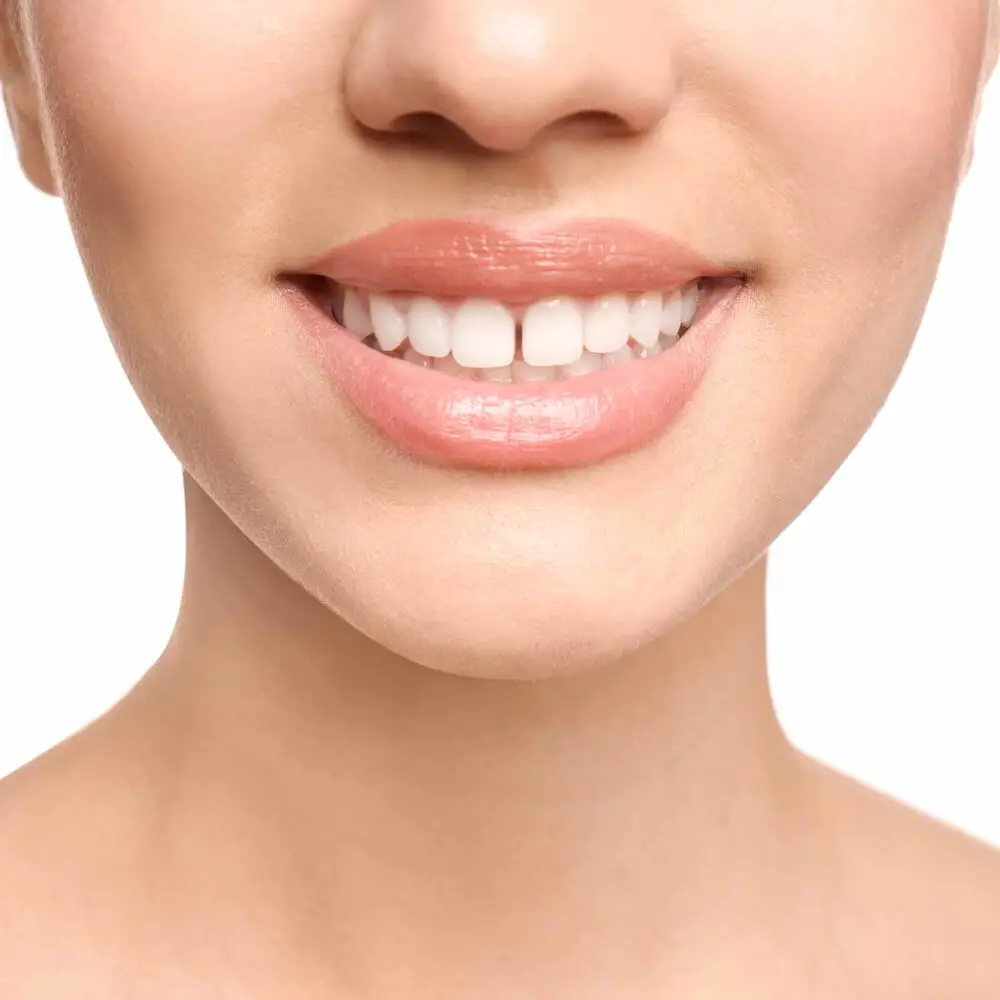
Taking care of your oral health is essential, especially after undergoing wisdom teeth removal surgery. One crucial aspect of maintaining good oral hygiene is to ensure that you take care of your teeth before bed. This is because bacteria and plaque tend to accumulate in your mouth overnight, which can lead to tooth decay, gum disease, and bad breath. To prevent this from happening, it’s recommended to brush and floss your teeth thoroughly before going to bed. This will help eliminate any food particles and bacteria that may have accumulated in your mouth throughout the day, thus reducing the risk of dental problems. In addition to brushing and flossing, you may also want to use an antiseptic mouthwash to kill any remaining bacteria in your mouth. This will help freshen your breath and prevent the growth of harmful bacteria that can cause tooth decay and gum disease. Another important factor to keep in mind is to avoid eating or drinking anything after you brush your teeth. This will allow the fluoride in your toothpaste to work its magic on your teeth overnight, helping to strengthen and protect your enamel. By following these oral care tips before bed, you can help ensure that your teeth and gums stay healthy and strong, even after wisdom teeth removal surgery.
Oral care before sleeping is crucial for maintaining good oral hygiene and preventing infections, especially after wisdom teeth removal. Brushing and flossing your teeth before bed can remove any food particles and plaque that have accumulated throughout the day, reducing the risk of bacteria growth in the mouth. This is particularly important after wisdom teeth removal because the extraction site is vulnerable to infection. Poor oral hygiene can also lead to bad breath and gum disease, which can slow down the healing process and cause further discomfort. Therefore, it is essential to establish a regular oral care routine before sleeping to ensure a comfortable and speedy recovery after wisdom teeth removal.
After wisdom teeth removal, it is crucial to maintain proper oral hygiene to prevent infection and promote speedy recovery. The first 24 hours after surgery, it is best to avoid rinsing or spitting to allow the blood clot to form properly. After this period, gentle salt water rinses can be done 2-3 times a day to keep the mouth clean. Brushing should be done carefully, avoiding the surgical site, and using a soft-bristled brush. Mouthwash should be avoided for the first week as it can irritate the area. Additionally, using a syringe to gently flush out food particles from the extraction site after meals can prevent infection and promote healing. Following these tips will ensure a healthy and comfortable recovery after wisdom teeth removal.
It is crucial to avoid certain oral care practices after wisdom teeth removal to ensure a comfortable and speedy recovery. Firstly, smoking or using tobacco products can lead to dry sockets, which is a painful condition that occurs when the blood clot that forms after surgery is dislodged. Secondly, drinking through a straw can also dislodge the blood clot and delay the healing process. Thirdly, vigorous rinsing or spitting can also cause the blood clot to dislodge, leading to further bleeding and pain. Therefore, it is essential to follow the post-operative instructions provided by your dentist and avoid these harmful oral care practices to promote a successful recovery.
Sleep Hygiene
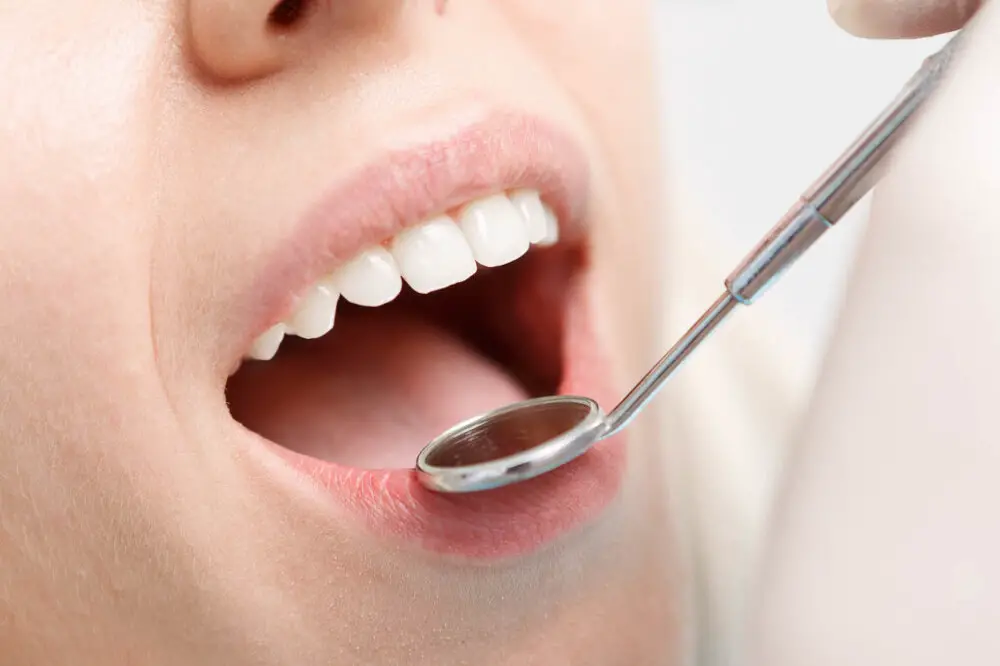
Sleep hygiene refers to the set of behaviors and habits that promote healthy and restful sleep. Good sleep hygiene can help individuals fall asleep faster, stay asleep longer, and wake up feeling refreshed and energized. Following proper sleep hygiene is especially important after wisdom teeth removal, as it can help facilitate a comfortable and speedy recovery. One key aspect of sleep hygiene is maintaining a consistent sleep schedule. Going to bed and waking up at the same time every day can help regulate the body’s internal clock and promote healthy sleep patterns. Another important aspect of sleep hygiene is creating a comfortable sleep environment. This can involve keeping the bedroom cool, dark, and quiet, using comfortable bedding and pillows, and minimizing distractions such as electronic devices. For individuals recovering from wisdom teeth removal, it may be helpful to prop themselves up with pillows to reduce swelling and promote better breathing. Additionally, avoiding caffeine and alcohol before bedtime can promote better sleep by reducing nighttime awakenings and disturbances. Overall, practicing good sleep hygiene can help promote a comfortable and speedy recovery after wisdom teeth removal, allowing individuals to get the rest they need to fully heal.
Maintaining good sleep hygiene is crucial for a speedy and comfortable recovery after wisdom teeth removal. Adequate sleep helps the body heal faster and reduces the risk of complications. To promote good sleep hygiene, it is recommended to avoid alcohol, caffeine, and nicotine before bedtime. Additionally, it is important to establish a consistent sleep schedule, avoid napping during the day, and create a comfortable sleep environment. Pillows can be used to support the head and elevate it to reduce swelling and discomfort. Lastly, avoid sleeping on the side where the wisdom teeth were removed and try to sleep in a more upright position to reduce swelling. By following these sleep hygiene tips, recovery after wisdom teeth removal can be more comfortable and efficient.
Creating a comfortable sleep environment is essential for a speedy and comfortable recovery after wisdom teeth removal. First, make sure to use a comfortable pillow that supports your head and neck to avoid straining your jaw. Second, keep the room cool and quiet, and use blackout curtains or an eye mask to ensure a dark sleep environment. Third, avoid using electronic devices before bedtime since the blue light can interfere with your sleep quality. Fourth, consider using a humidifier to keep the room moist and prevent dryness in your mouth, which can cause discomfort. Lastly, try to sleep on your back to avoid putting pressure on the surgical site and to promote a more restful sleep. By following these tips, you can create a comfortable sleep environment that will help you recover quickly and comfortably after wisdom teeth removal.
Establishing good sleep habits is crucial during recovery after wisdom teeth removal. It is a time when the body needs to heal, and sleep is an essential part of that process. Good sleep habits ensure a comfortable and speedy recovery. Sleep helps the body to repair and regenerate damaged tissues, and it also helps reduce inflammation, pain, and discomfort. Getting enough sleep helps the body to produce growth hormone, which is essential for healing and recovery. It is important to establish a regular sleep schedule, avoid caffeine and alcohol, and create a relaxing sleep environment to promote restful and uninterrupted sleep. Good sleep habits during recovery can make a significant difference in the healing process and help patients get back to their daily activities as soon as possible.
The article \Sleeping After Wisdom Teeth Removal Tips for a Comfortable and Speedy Recovery\ provides readers with practical advice on how to sleep comfortably and recover quickly after having wisdom teeth removed. The author emphasizes the importance of getting enough rest and avoiding strenuous activity in the first few days after the procedure. The article suggests using pillows to elevate the head and using ice packs to reduce swelling and discomfort. Additionally, the author recommends taking pain medication as prescribed and avoiding solid foods until the mouth heals. Overall, this article provides helpful tips for those who have recently undergone wisdom teeth removal and want to ensure a comfortable and speedy recovery.
Following the tips for a comfortable and speedy recovery after wisdom teeth removal is crucial to ensure that the healing process is as smooth and hassle-free as possible. By taking proper care of yourself and adhering to the guidelines, you can avoid complications and reduce the risk of infection. The tips provided in the article, such as elevating your head while sleeping, avoiding strenuous activities, and taking prescribed medications, can help alleviate pain and swelling and promote healing. Additionally, adhering to a soft food diet and staying hydrated can also aid in the recovery process. Therefore, it is essential to follow these tips to make the recovery process as comfortable and speedy as possible.
If you have recently undergone wisdom teeth removal surgery, it is important to seek personalized advice from a dentist or doctor for a comfortable and speedy recovery. Although there are general tips and guidelines for post-operative care, individual circumstances may vary, and a medical professional can provide tailored recommendations to suit your specific needs. Whether it’s managing pain, preventing infection, or ensuring proper healing, a consultation with a dentist or doctor can help you navigate the recovery process with confidence and ease. Don’t hesitate to seek out their expertise to ensure a successful recovery.
Conclusion
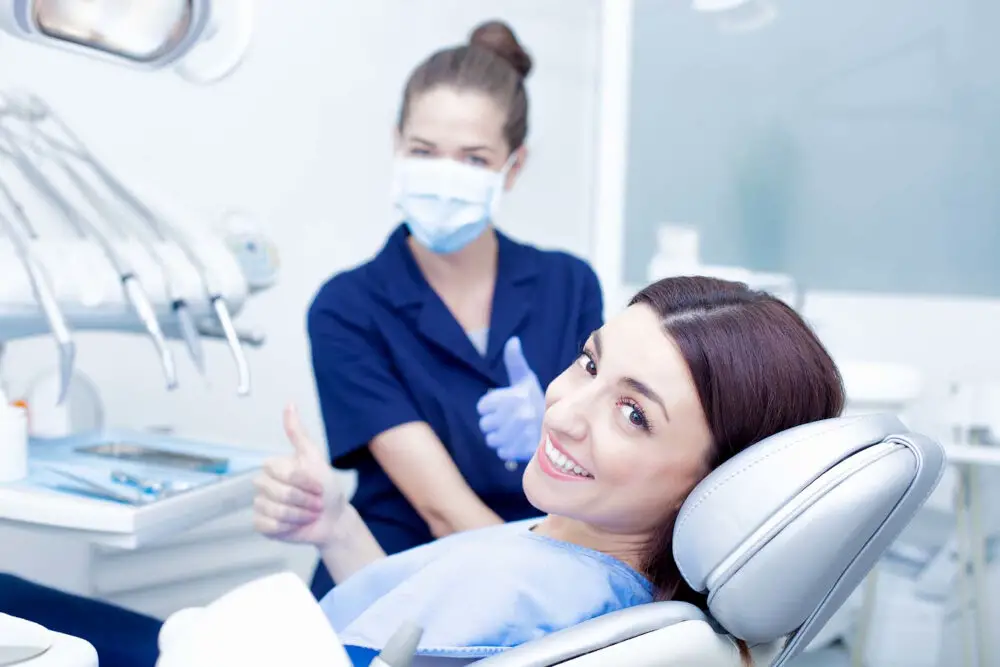
In conclusion, getting your wisdom teeth removed can be a daunting experience, but with the right tips, you can make your recovery process smooth and comfortable. Adequate sleep is crucial to healing, and by following the tips provided, you can ensure that you get the best possible sleep. Remember to keep your head elevated, stay hydrated, and take your medication as prescribed. Avoid activities that may disrupt your healing process, and follow your dentist’s post-operative instructions carefully. With patience and proper care, you can recover quickly and get back to your daily routine. So rest easy, and take care of yourself!


